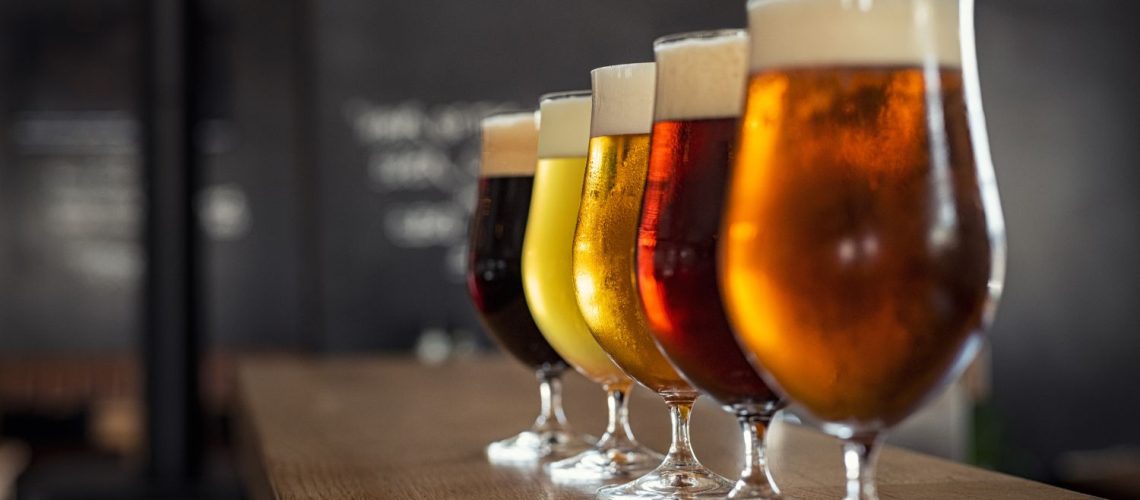Have you ever paused mid-sip and wondered, “Does this delightful beverage have an expiration date?” Let’s talk about a critical issue that haunts the dreams of beer enthusiasts worldwide: the tragic possibility of beer going bad. Yes, it’s a real thing, not a myth like Bigfoot or low-calorie beer that actually tastes good. Let’s dive into this sudsy subject with the seriousness it deserves.
When Does Beer Go Bad?
Imagine this: you’ve unearthed a long-forgotten beer from the depths of your fridge. It’s like finding hidden treasure, but instead of gold, it’s hops and barley. The question is, should you drink it? Beer doesn’t spoil like milk, turning into a sour, chunky mess. However, it does lose its charm over time. The general rule is that most beers are best enjoyed within three to six months after bottling. But, like a complex character in a TV drama, beer can be full of surprises. Some might still taste decent after a year, especially if they’ve been stored in the conditions of a beer spa – cool, dark, and laid-back.
How Long Does Beer Last?
You might think of beer as an eternal elixir, but it’s more like that fresh salad you buy – it’s got a best-by date. The longevity of beer depends on its type. Lighter beers are the mayflies of the beer world – they’re best consumed quickly. On the other hand, stronger, darker beers with higher alcohol content can sometimes improve with age, like a fine actor gaining gravitas. But let’s be honest, most of us don’t have the patience of a saint to age beer; we’re more about instant gratification.
Can Expired Beer Make You Sick?
Drinking beer past its prime is like going on a blind date with a pirate – it’s not inherently dangerous, but you’re likely in for an unpleasant experience. Expired beer is typically safe to drink, in the sense that it won’t send you to the hospital. However, it might assault your taste buds with flavors reminiscent of a musty basement or a rusty coin. So, while it won’t make you sick in the traditional sense, it might make you sick of bad beer.
Signs of Bad Beer
Detecting a bad beer is an art form. The first sign is often the taste – if it reminds you of licking a barnyard gate or a wet dog, it’s probably past its prime. The aroma is another giveaway. Good beer smells inviting, like a fragrant, hoppy embrace. Bad beer? It smells like it’s plotting against you. And let’s not forget appearance. If your beer looks more like a murky swamp potion than a sparkling amber nectar, it’s time to say adieu.
Beer Storage Tips
Storing beer is like caring for a Gremlin – there are rules. Keep it cool, but not ice-cold. Store it upright to minimize oxidation and contamination from the cap. Darkness is your ally; light is your foe. Think of your beer as a vampire – it thrives in cool, dark places. If you treat your beer with the respect it deserves, it will return the favor with a delightful drinking experience.
Storage Issues with Beer
The main villains in the beer storage saga are heat, light, and air. These malevolent forces work tirelessly to turn your heavenly brew into a skunky nightmare. Heat accelerates aging, making the beer taste like it’s been sunbathing too long. Light, especially UV rays, can break down the hop compounds, leading to that infamous ‘skunked’ beer, which is about as enjoyable as a skunk at a garden party.
Preventing Beer Spoilage
You need to become a beer guardian to keep your beer from turning into a sad shadow of its former self. Keep it at a stable, cool temperature. Think of your beer like a temperamental Hollywood star – it doesn’t like extreme or fluctuating conditions. Consistency is key. Also, keep it away from direct light; even beer likes a bit of privacy.
Beer Freshness Concerns
Freshness in beer is like freshness in comedy – timing is everything. A fresh beer is a joy, full of vibrant flavors and aromas. An old beer is like a tired joke – it just doesn’t hit the mark. Always check the bottling or expiration date. If the beer is older than some of your relationships, it’s probably not at its peak.
Proper Beer Aging
While most beers are best enjoyed fresh, some are like a good cheese, getting better with age. These are usually high-alcohol, robust styles like barleywines, imperial stouts, or Belgian strong ales. Aging these beers can lead to complex, nuanced flavors – think of it as a beer going on a spiritual journey to find itself. But remember, not all beers are cut out for this journey. Aging a light lager is like asking a fish to climb a tree – it’s just not going out well.
Managing Beer Temperature
The perfect temperature for beer storage is a hotly debated topic. Generally, aim for cellar temperature, around 45-55°F (7-13°C). This is the Goldilocks zone – not too hot, not too cold, just right. Treating your beer like a treasured artifact in a museum, with the perfect climate-controlled environment, will reward you with its best taste.
Effects of Light Exposure on Beer
Light exposure in beer is like a tabloid journalist – it can bring out the worst. Light-struck or ‘skunked’ beer results from a chemical reaction triggered by exposure to light, particularly UV light. This reaction is like a flavor assassin, turning your delightful brew into something reminiscent of a skunk’s defense mechanism. The solution? Keep your beer in the dark, like a secret you’re not ready to share.
Dealing with Skunked Beer
You face a tough decision if you find yourself with a skunk of beer. Do you soldier on and drink it, pretending to enjoy the funky flavors, or pour it out and mourn its untimely demise? There’s no right answer here. It’s a personal journey of beer grief.
In conclusion, like all good things in life, beer can go bad. But with proper care, attention to storage, and an understanding of the beer’s personality, you can enjoy your brews at their best. Treat your beer with love, and it will love you back. Cheers to good beer – may it be fresh, flavorful, and skunk-free! 🍻


